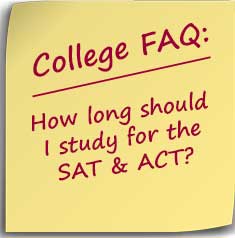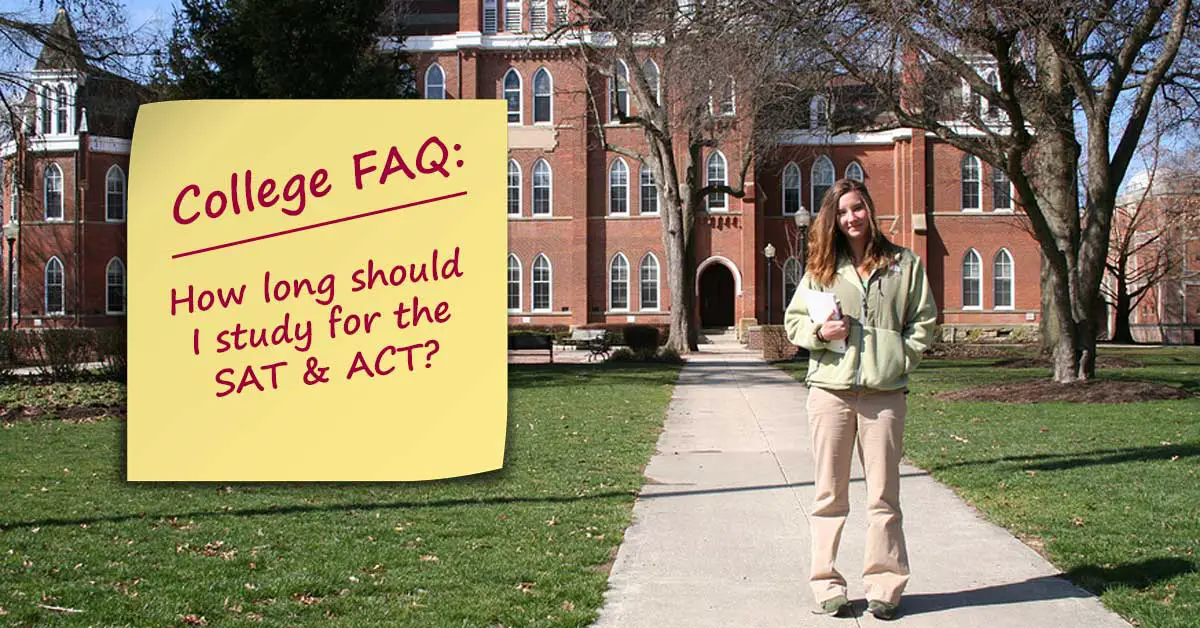 The sweet spot for studying for the SAT & ACT is eight to twelve weeks. Students who give themselves less than 8 weeks to study for the SAT but are expecting to improve by more than 100 points are not giving themselves adequate time to reach their goals. Students studying for more than 3 months are likely to see diminishing returns from their hard work.
The sweet spot for studying for the SAT & ACT is eight to twelve weeks. Students who give themselves less than 8 weeks to study for the SAT but are expecting to improve by more than 100 points are not giving themselves adequate time to reach their goals. Students studying for more than 3 months are likely to see diminishing returns from their hard work.
When you might study longer
However, students who need to improve by hundreds of points in order to reach a certain scholarship score or admissions cutoff should expect to study for SAT or ACT for more than 3 months. At SoFlo Tutors, our first tutor John was the Valedictorian of his high school class, but scored a 1250 on his first SAT. John dreamed of going to Princeton and wasn’t planning on his low SAT score holding him back. John studied twice a week for over a year to eventually raise his score to a 1570, high enough that he was able to get into Princeton.
Why fewer than 8 weeks doesn’t work
Alternatively students who give themselves less than eight weeks to study for the SAT or ACT are putting themselves into a tough spot. The SAT has a lot of material to cover across four unique sections (plus the optional essay portion). Some of the test can be taught with simple tricks like choosing the shortest answer on the writing section, but much of the exam is learning content.
For example, students must know when to use a comma, how to read a graph, and how to factor a polynomial. These concepts cannot be crammed in only a few weeks. If students do not give themselves time to learn the core concepts of the exam they will be setting themselves up for failure on test day.
Studying for the SAT is like going to the gym. Students who put in the work will get strong. Students who show up for only a week or two will not see real results. The best scenario is that a week or two of prep before the exam increases comfort and reduces anxiety on test day. If students feel prepared for the exam they are likely to perform better.
When you can skip studying at all
There is one situation where we don’t encourage students committing to studying: the PSAT. Except for high scoring students who are aiming for a 99th percentile score to achieve National Merit honors, the PSAT is practice for most students. The score will not be sent to colleges or affect a student’s chances of admissions. Instead the PSAT is an opportunity to get a student’s feet wet with testing and establish a baseline SAT test score. Thus we dissuade all but the top students from spending months or even weeks preparing for the PSAT.
Students should take their tests in quick succession. Once they’ve built up momentum from studying for the exam during their Junior year they should aim to take 2-3 exams back to back while continuing to study between exams. This gives students an opportunity to take advantage of superscoring and learn from their mistakes on individual tests.
Adam Shlomi the founder of SoFlo SAT Tutoring. He went to Georgetown University, scored 1570/1600 on the SAT. SoFlo offers online SAT/ACT Prep to students around the world and has 60 tutors on our team. It also offers a free SAT prep course.


